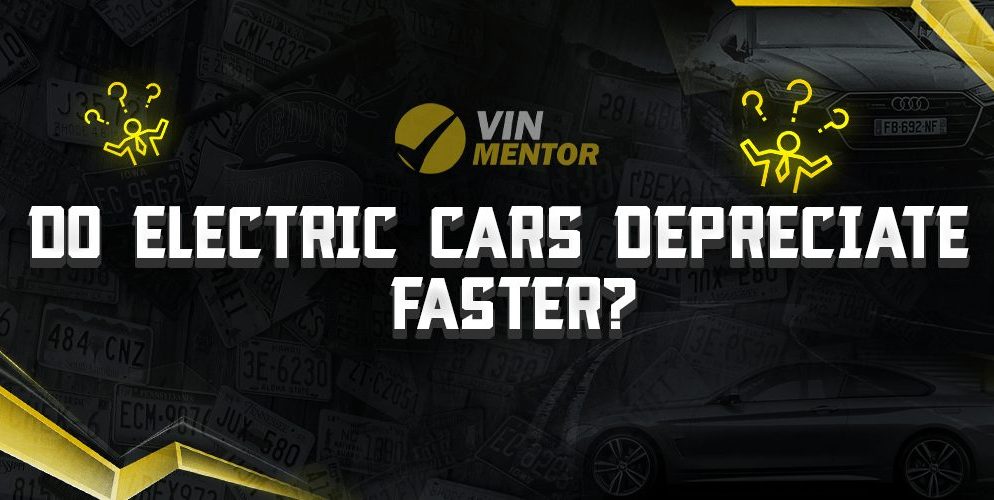

As electric cars gain increasing popularity, many are curious about their depreciation rates in comparison to traditional gasoline vehicles. In this article, we will delve into this topic and explore the factors that influence the depreciation of electric vehicles. Read on as we uncover the truth behind electric car depreciation.
Key Takeaways
- Electric cars may experience different depreciation patterns compared to traditional gasoline cars.
- Factors such as battery technology, market demand, government incentives, mileage, and depreciation rates can shed light on electric car depreciation.
- Analyzing statistical data provides valuable insights into the depreciation trends of electric vehicles.
- Electric cars have demonstrated resilience in holding their value over time.
Factors Affecting Electric Car Depreciation
When it comes to the depreciation of electric cars, several factors come into play. By examining these factors, we can gain insights into the depreciation patterns of electric cars and make informed decisions when considering an electric vehicle purchase.
Battery Technology
- Advancements in battery technology have a significant impact on electric vehicle depreciation.
- Longer range, improved durability, and enhanced battery performance positively influence resale values.
Market Demand and Perception
- Growing environmental concerns, government regulations, and technological advancements drive the increasing demand for electric cars.
- Positive market perception and a broader acceptance of electric vehicles contribute to slower depreciation rates.
Government Incentives
- Tax credits, rebates, and other government incentives reduce the initial cost of owning an electric car and can positively impact resale values.
- These incentives encourage consumer adoption and contribute to slower depreciation rates.
Mileage and Maintenance
- Like any vehicle, the mileage driven and overall condition affect an electric car’s depreciation.
- High-mileage vehicles, especially those used for commercial purposes, may experience faster depreciation.
Examining Depreciation Statistics
- Electric Car Resale Values: According to statistical data, electric cars retain their value well compared to traditional gasoline cars. For example, a study by iSeeCars found that electric cars, on average, depreciate 52.6% after five years, while gasoline cars depreciate 66.6% during the same period.
- Comparing Depreciation Rates: When comparing depreciation rates between specific electric models and similar gasoline models, the data reveals interesting trends. For instance, a study conducted by Kelley Blue Book showed that the Tesla Model S depreciated 30% after three years, while luxury gasoline cars depreciated around 45% during the same timeframe.
- Residual Value Predictions: Residual value predictions made by industry experts provide insights into the expected depreciation rates of electric vehicles. According to a study by Black Book, it was projected that the residual value of electric vehicles would increase from 30% to 35% after three years, showcasing a positive trend in their depreciation compared to previous years.
These statistics demonstrate that electric cars not only retain their value better than gasoline cars but also depreciate at a slower rate. The advancements in battery technology, increased market demand, and growing adoption of electric vehicles contribute to their favorable depreciation trends.
Conclusion
Do electric cars depreciate faster? The answer is no. Statistical data and studies consistently show that electric vehicles tend to hold their value well over time. Factors such as battery technology advancements, market demand, government incentives, and mileage influence electric car depreciation. While individual models and market conditions may vary, overall, electric cars demonstrate resilience in terms of depreciation rates. If you are considering purchasing an electric car, conducting a comprehensive VIN check through our recommended best VIN Check Websites can provide valuable information about the vehicle’s history, empowering you to make informed decisions and ensure a satisfying electric car ownership experience.
FAQ
Do electric cars depreciate faster than gasoline cars?
No, statistical data consistently shows that electric cars tend to hold their value well over time compared to gasoline cars.
What factors affect the depreciation of electric cars?
Several factors influence the depreciation of electric cars, including battery technology, market demand and perception, government incentives, mileage, and maintenance.
How does battery technology impact electric car depreciation?
Advancements in battery technology, such as longer range, improved durability, and enhanced performance, have a positive effect on the resale value of electric cars.
Does market demand play a role in electric car depreciation?
Yes, growing environmental concerns, government regulations, and increased demand for electric cars contribute to slower depreciation rates.
How do government incentives affect electric car depreciation?
Government incentives, such as tax credits and rebates, reduce the initial cost of owning an electric car and can positively impact resale values, encouraging slower depreciation.
Does mileage affect the depreciation of electric cars?
Yes, like any vehicle, high-mileage and commercial use can lead to faster depreciation of electric cars.
Are there any studies on electric car depreciation rates?
Yes, various studies have been conducted. For example, iSeeCars found that electric cars depreciate 52.6% after five years, while gasoline cars depreciate 66.6% during the same period.
How do specific electric car models compare to gasoline models in terms of depreciation?
Studies have shown that specific electric models, such as the Tesla Model S, depreciate less after a certain period compared to similar luxury gasoline cars.
Are there any predictions about future electric car depreciation rates?
Residual value predictions made by industry experts suggest a positive trend in electric car depreciation rates, with projected increases in residual values after a few years.
Should I consider purchasing an electric car based on its depreciation rate?
While depreciation is an important factor, it should not be the sole consideration. Other factors like fuel savings, environmental benefits, and overall ownership experience should also be taken into account when considering an electric car purchase.












